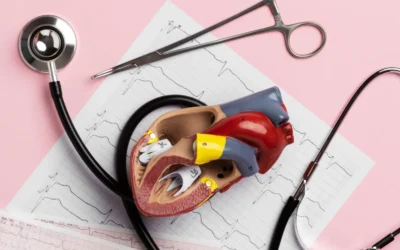In today’s fast-paced world, health and wellness often take a backseat to convenience and quick fixes. But in the book “Good Energy”, we are reminded of the profound impact that small changes can make in our lives. This article will walk you through some of the most eye-opening lessons from the book, which challenge conventional wisdom and inspire action towards a healthier, more sustainable lifestyle.
Table of Contents
Commit to a Digital Detox
The overuse of smartphones is linked to more than just eye strain or disrupted sleep. Research shows that excessive smartphone use has been connected to serious mental health issues, including psychiatric, cognitive, and emotional changes. Reducing screen time by just one hour a day can decrease anxiety and depressive symptoms and improve overall life satisfaction.
Tip: Start small by designating one hour a day as “phone-free” time, perhaps during dinner or before bed. Use this time to engage in physical activities, read a book, or simply enjoy time with family.
How Hospitals Profit from Illness
Healthcare, unfortunately, operates within a system that financially rewards more procedures, quick visits, and treatments rather than outcomes. Revenue from hospitals is largely determined by billing codes, incentivizing them to perform more tests, prescribe medications, and increase patient throughput to maximize reimbursements. The more procedures and medications they provide, the more they are compensated.
Tip: Always ask your healthcare provider about the necessity of tests and treatments. Seeking a second opinion can help ensure that the recommended procedures are truly in your best interest.
Pharmaceutical Industry Influence
Pharmaceutical companies spend three times more on lobbying than the oil industry, heavily influencing legislation and medical guidelines. This can shape the medications you’re prescribed and the way health issues are managed across the board.
Fact: Many modern healthcare guidelines are affected by these industries, making it harder for unbiased information to reach patients and providers.
Tip: Stay informed by researching medications and treatments from multiple reliable sources, and don’t be afraid to ask your doctor about the influences behind your care.
The Hidden Influence of Food Companies on Research
Food companies often fund research that downplays the harm caused by their products. For example, 82% of independent studies show the dangers of sugar-sweetened beverages, but when the food industry funds research, 93% of the studies find no harm. The influence of these companies leads to misleading food guidelines and marketing practices that compromise public health.
Tip: Focus on whole, unprocessed foods and limit products with added sugars and artificial ingredients. Always question the source of health claims on processed foods.
Artificial Food Dyes and Mental Health
Red 40, a commonly used food dye, has been linked to aggressive behavior in children, autism, ADHD, and mental health issues. Despite this, it is still widely used in many popular snacks and beverages.
Tip: Avoid foods that contain artificial dyes, especially those with “Red,” “Blue,” or “Yellow” in the ingredient list. Opt for natural alternatives like beet powder or turmeric for coloring.
Walking: The Ultimate Health Hack
Walking 10,000 steps a day can dramatically reduce your risk of various health issues. Studies show that regular walking lowers the risk of dementia by 50%, reduces the risk of Type 2 diabetes by 44%, and lowers obesity risk by 31%. These benefits far surpass what medications can do for chronic disease prevention.
Tip: Incorporate walking into your daily routine. Whether it’s a morning walk, walking during lunch breaks, or after dinner, getting those steps in could be your easiest route to better health.
The Surprising Benefits of Regular Sauna Use
Regular sauna use offers dramatic health benefits, including a 63% reduction in sudden cardiac death and a 40% reduction in all-cause mortality. Additionally, frequent sauna sessions have been associated with a 66% reduction in dementia and a 65% reduction in Alzheimer’s disease.
Tip: If you have access to a sauna, incorporating it into your routine could enhance cardiovascular health and longevity. If not, consider other forms of heat therapy or alternative relaxation techniques.
Refined Sugar: A Hidden Killer
Refined added sugar is more than just empty calories—it’s an addictive substance that contributes to more deaths annually than COVID-19 and fentanyl overdoses combined. It’s present in 74% of U.S. food products, yet the body requires none of it. Reducing refined sugar can significantly lower your risk of obesity, diabetes, and heart disease.
Tip: Cut back on sugary beverages, snacks, and processed foods. Read labels carefully and opt for natural sources of sweetness, such as fruits, instead of foods packed with refined sugar.
The Shocking Lack of Nutrition Education in Medical Schools
Despite the overwhelming evidence that diet plays a crucial role in chronic diseases, 80% of medical schools in the U.S. do not require students to take a single nutrition class. This creates a healthcare system where doctors are ill-equipped to address the root causes of many illnesses, leading to a treatment-focused, rather than prevention-focused, system.
Fact: Chronic diseases like diabetes, heart disease, and certain cancers are largely preventable with proper nutrition, yet most doctors are not trained in this essential aspect of care.
Tip: Empower yourself with nutritional knowledge. Seek advice from nutritionists or dietitians, and don’t rely solely on medication to manage health issues that could be improved through diet.
Chronic Illness is the New Normal
Six out of ten adults are living with a chronic illness, and 74% of American adults are overweight or obese. Meanwhile, life expectancy in the U.S. has been declining, with rising rates of mental illness, heart disease, and cancer. These statistics highlight the importance of addressing the root causes of these conditions, rather than just treating symptoms.
Tip: Take a proactive approach to your health by focusing on prevention through regular screenings, maintaining a balanced diet, exercising regularly, and managing stress levels. Early intervention can dramatically improve your quality of life.
Takeaway: Your Health is in Your Hands
The lessons from “Good Energy” are clear: the system isn’t always set up to prioritize your health, and the most powerful changes start with you. From reducing smartphone use to cutting out refined sugar, taking small, consistent actions can lead to a healthier, more fulfilling life. Be proactive, stay informed, and don’t hesitate to question the status quo when it comes to your well-being.
Key Actions to Take:
- Schedule a digital detox to improve mental well-being.
- Be cautious of unnecessary medical procedures and seek second opinions.
- Avoid foods high in added sugars and artificial dyes.
- Walk 10,000 steps a day to significantly reduce your risk of chronic diseases.
- Incorporate sauna use into your wellness routine if possible.
- Empower yourself with nutrition knowledge, even if your doctor isn’t trained in it.
Your health isn’t just about treating problems when they arise—it’s about preventing them before they start.





0 Comments